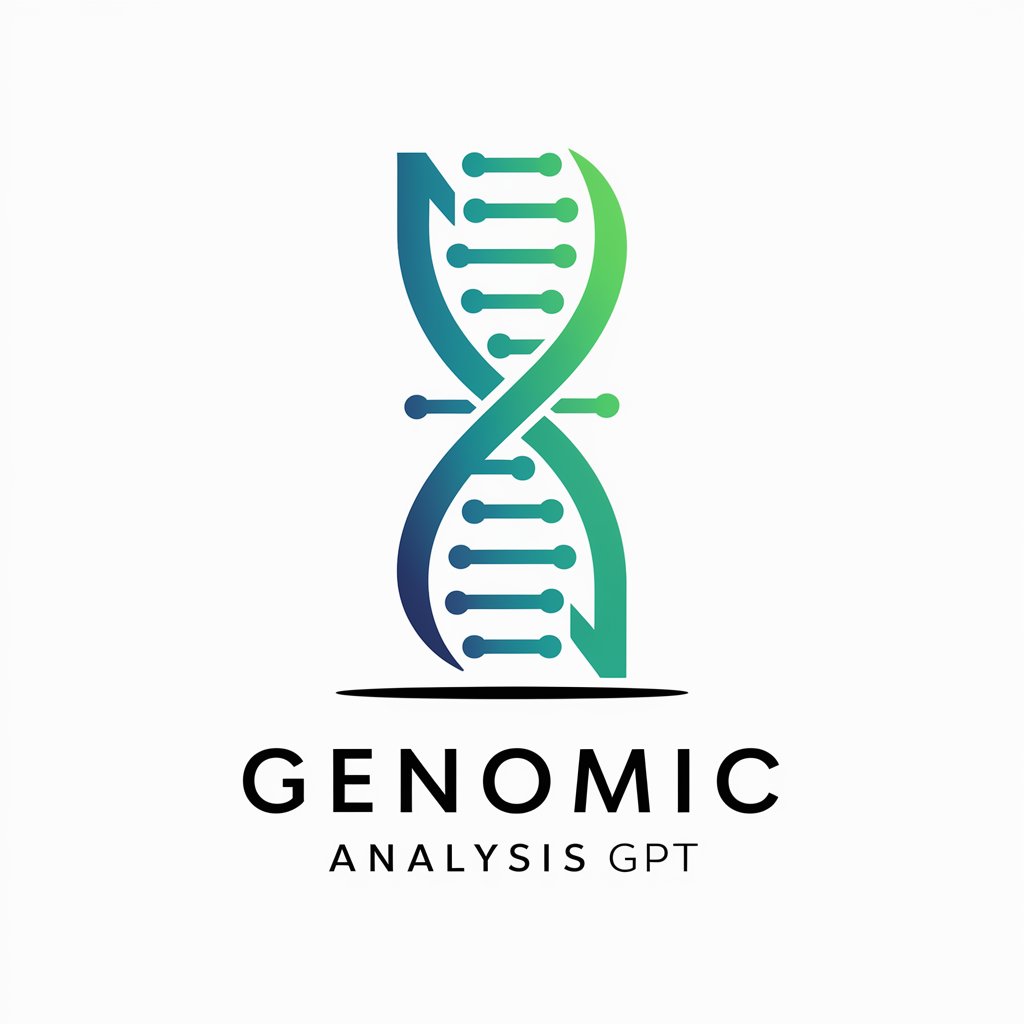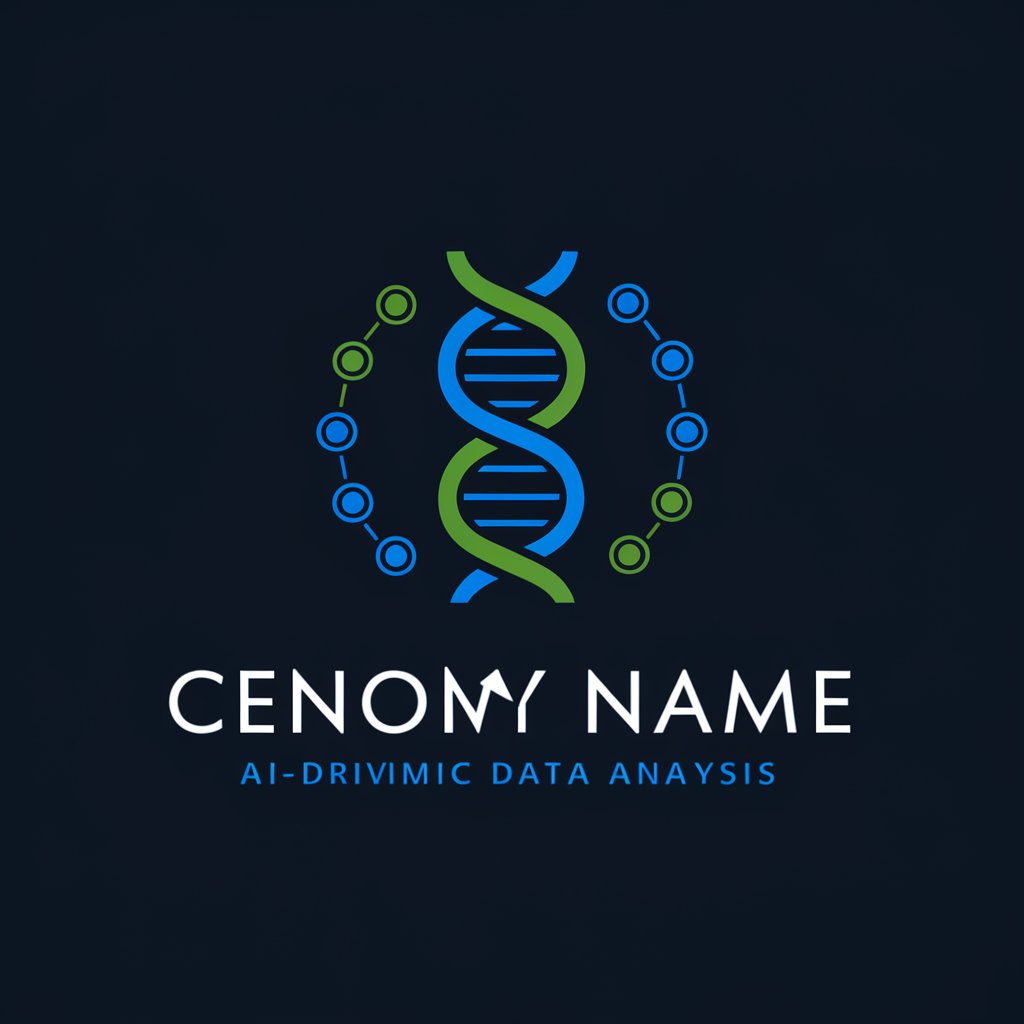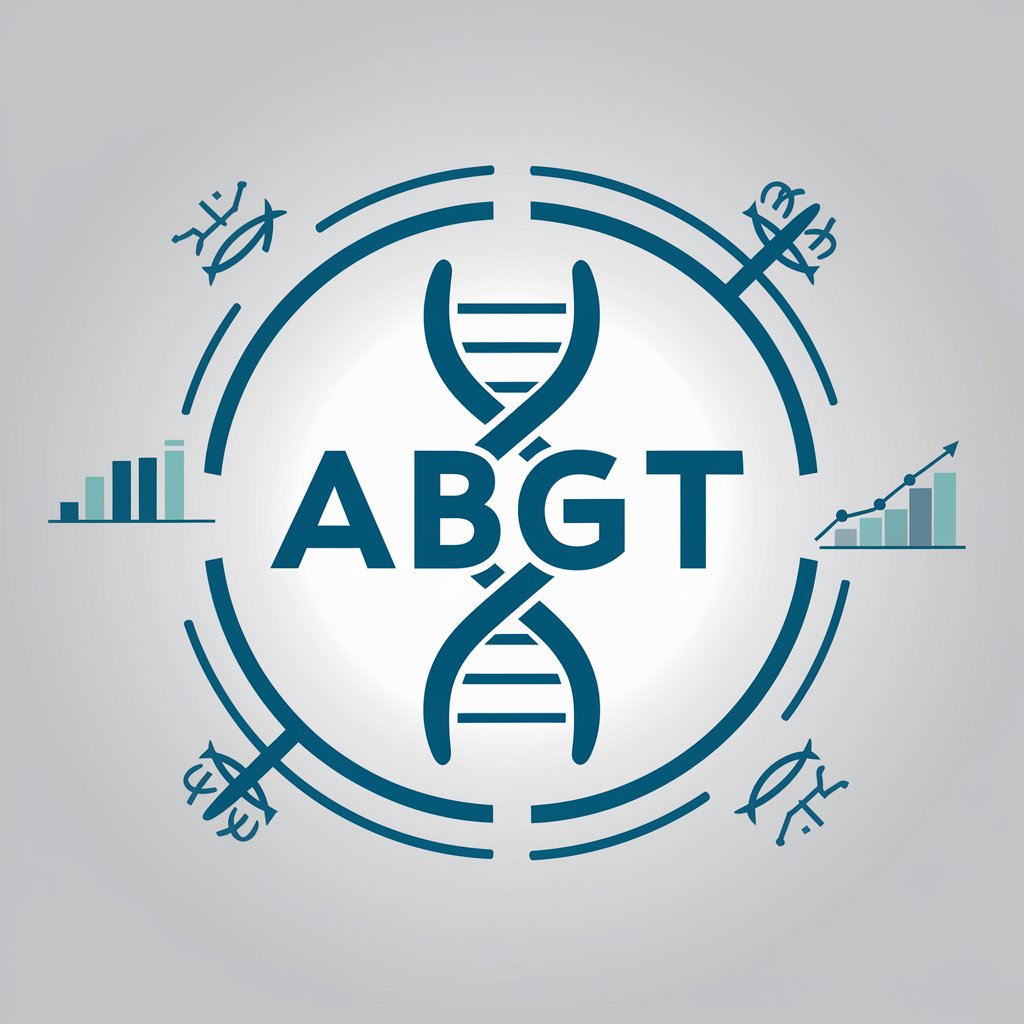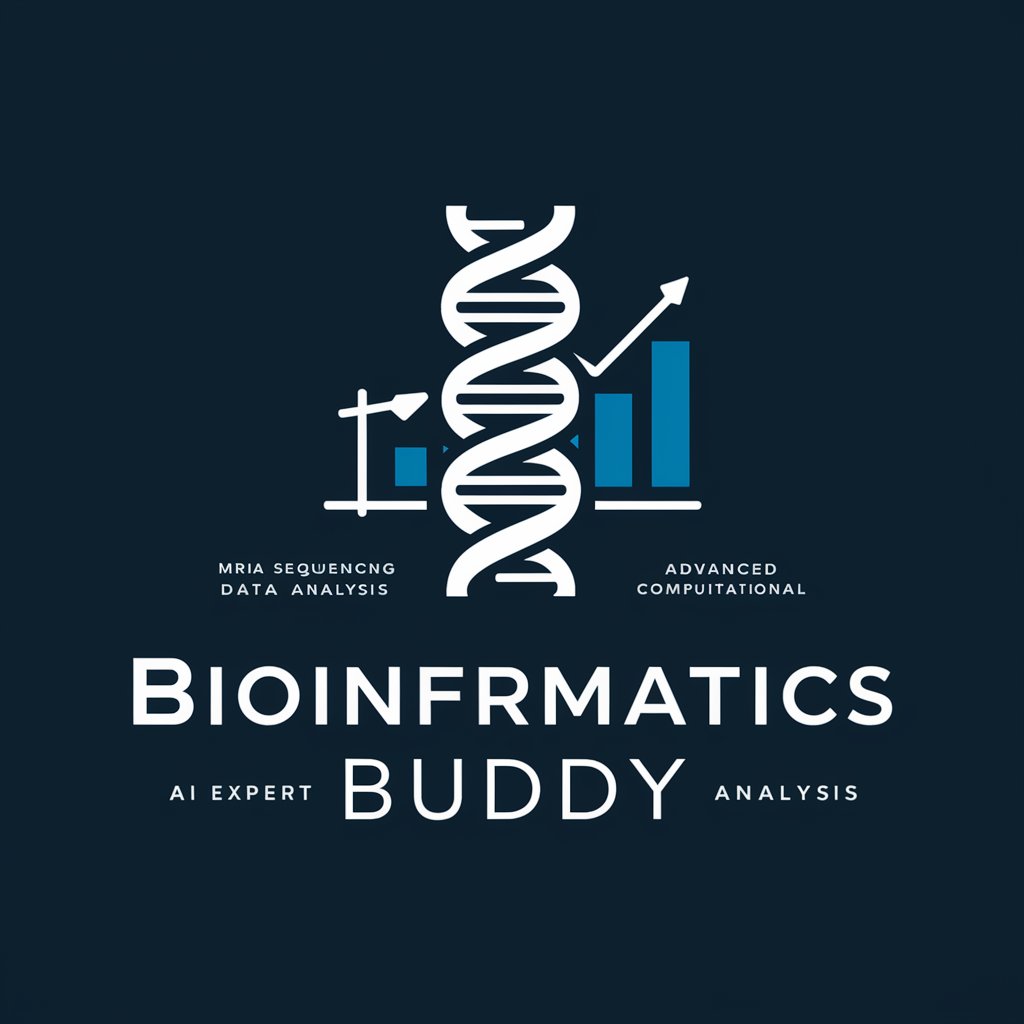
Genomics Expert in Chinese - Genomics Expert Analysis

您好!请问有什么遗传学问题可以帮您解答吗?
AI-powered genomics analysis tool
请解释Haploview是什么?
如何使用Haploview分析基因数据?
基因组信息学中的常见问题有哪些?
遗传变异和疾病之间的关系是什么?
Get Embed Code
Genomics Expert in Chinese Introduction
Genomics Expert in Chinese is a specialized AI developed to provide detailed, accurate information and guidance in the field of genomics, particularly focusing on the usage of Haploview for analyzing and interpreting genetic data. It's designed to explain complex genetic concepts and data analysis techniques in an understandable manner to those without a deep background in genomics. Examples include guiding users through the intricacies of linkage disequilibrium analysis, haplotype block identification, and association tests, thereby enabling more informed research and study in genomics. Powered by ChatGPT-4o。

Main Functions of Genomics Expert in Chinese
Linkage Disequilibrium Analysis
Example
Illustrating relationships between genetic markers and their linkage disequilibrium using Haploview's color-coded D’ and r2 values.
Scenario
Researchers analyzing genetic data to identify regions of the genome associated with specific diseases.
Haplotype Block Identification
Example
Using methods like Gabriel's method, Four-Gamete Rule, or solid spine of LD to define blocks within genetic data.
Scenario
Geneticists seeking to understand the structure of the human genome and its implications for genetic linkage and association studies.
Association Tests
Example
Conducting case/control and family-based association tests to identify genetic markers associated with specific traits or diseases.
Scenario
Epidemiologists investigating the genetic basis of diseases like alcohol dependency or other complex traits.
Tagger Analysis
Example
Selecting tag SNPs for genotyping in association studies to efficiently represent genetic variation within a population.
Scenario
Biomedical researchers planning a genotyping study to discover genetic variations contributing to complex diseases.
Permutation Testing
Example
Performing permutation tests to assess the significance of association test results, providing a framework for understanding the random distribution of data.
Scenario
Statisticians evaluating the robustness of genetic association findings in large-scale genetic data.
Ideal Users of Genomics Expert in Chinese Services
Genetic Researchers
Scientists and researchers in genetics who need to analyze large datasets to uncover genetic markers associated with diseases or traits. They benefit from detailed guidance on using Haploview and interpreting its outputs for research purposes.
Bioinformatics Students
Undergraduate and postgraduate students studying bioinformatics or genetic epidemiology. These users gain from the clear explanations of complex genomic analysis concepts, helping them in their academic and research projects.
Healthcare Professionals
Doctors and healthcare professionals interested in the genetic basis of diseases. They use the service to understand how genetic variations can influence disease risk and treatment outcomes, aiding in precision medicine.
Biotechnology Industry Professionals
Individuals working in the biotechnology and pharmaceutical industries, involved in drug discovery and development. They benefit from insights into genetic factors that might impact drug efficacy and patient responses.

Genomics Expert in Chinese Usage Guide
1. Visit yeschat.ai for a free trial
Access the Genomics Expert in Chinese by starting with a hassle-free, no-login required trial at yeschat.ai to explore its capabilities without the need for ChatGPT Plus.
2. Choose your analysis tool
Select Haploview or another genomics informatics tool from the provided options to analyze genetic data based on your specific research needs.
3. Upload genetic data
Prepare and upload your genetic data file in the format compatible with Haploview, ensuring it meets the necessary prerequisites such as SNP markers and genotypes.
4. Analyze and interpret data
Use the Genomics Expert to perform various analyses such as linkage disequilibrium, haplotype blocks identification, and association tests, then interpret the results with the provided guidance.
5. Seek further assistance
For complex queries or further interpretation of results, use the direct query feature to ask specific questions or request additional information on genomics topics.
Try other advanced and practical GPTs
Genomic Variant Interpretator
Deciphering Genetics with AI Power

Policy Genomics Advisor
Empowering Policy Decisions with AI

Genomic Analysis GPT
Deciphering genetics with AI precision.

Genomic Data Analysis and Interpretator
Unravel Genetics with AI Power

ConvoAI by YOENSO
Enhance English with AI Conversations

IELTS Speaking Examiner - User Initiated Questions
AI-Powered IELTS Speaking Mastery

Advanced Bioinformatics and Genomics Tutor
AI-powered genomics and bioinformatics exploration.

3D Pencil Artist
Unlock your 3D drawing potential with AI

HELO | Investing 101
Empowering your investment journey with AI.

Whiskers the Wanderer
Embark on journeys with a digital feline

Logo Creator and Advisor
Craft Your Brand Identity with AI

MerchanTrack - Master Your Bay inventory
Streamlining eBay Inventory with AI

Q&A on Genomics Expert in Chinese
What is Haploview?
Haploview is a software tool designed for analysis of genetic data, offering functionalities like linkage disequilibrium analysis, haplotype block analysis, and SNP association tests, facilitating the identification of genetic markers related to diseases.
How do I prepare my data for Haploview?
Prepare your data by ensuring it meets Haploview’s format requirements, including SNP markers and genotype information. Data should comply with Hardy-Weinberg equilibrium and minimum allele frequency standards for effective analysis.
Can Genomics Expert in Chinese interpret my genetic analysis results?
Yes, the Genomics Expert can help interpret results from Haploview, including understanding linkage disequilibrium maps, haplotype frequencies, and association test outcomes, providing insights into the genetic basis of diseases.
What are the common use cases of Genomics Expert in Chinese?
Common use cases include genetic research in diseases, population genetics studies, identification of disease-associated genetic markers, and educational purposes in genomics and bioinformatics.
How can I optimize my use of Genomics Expert in Chinese for my research?
Optimize your experience by clearly defining your research goals, preparing your data according to Haploview's requirements, using the interpretation features to understand your results, and leveraging the direct query feature for complex inquiries.




